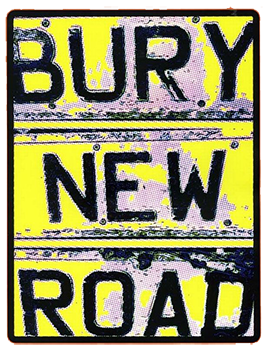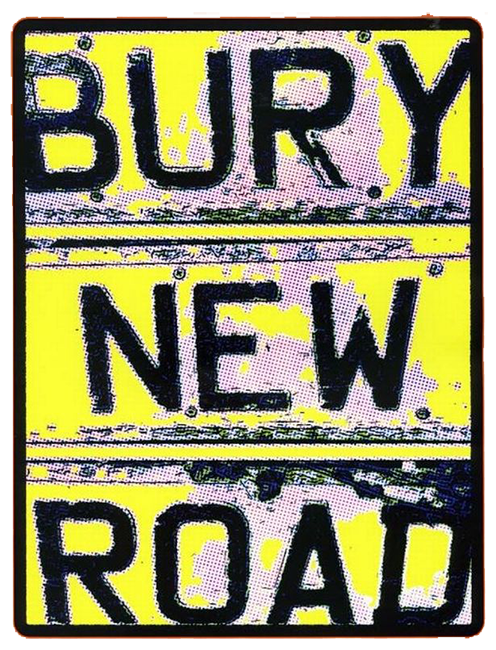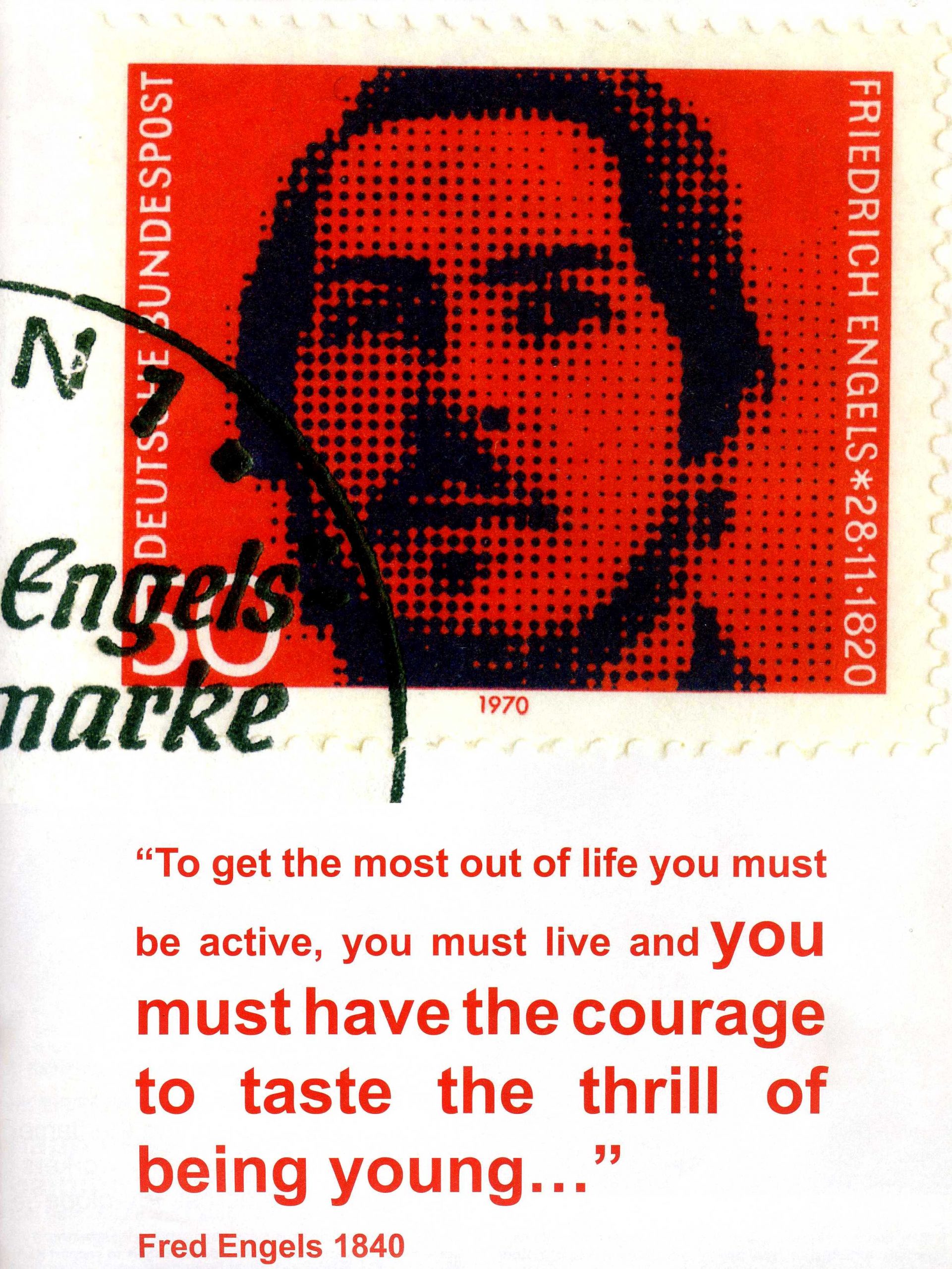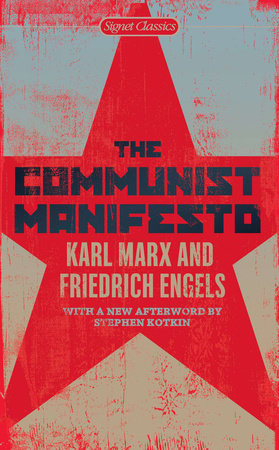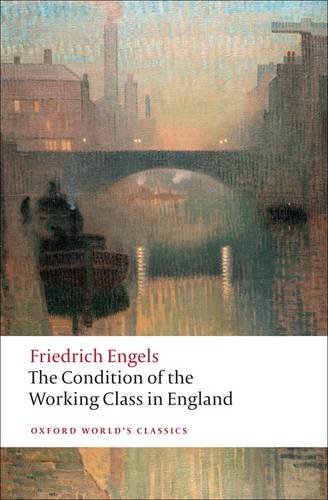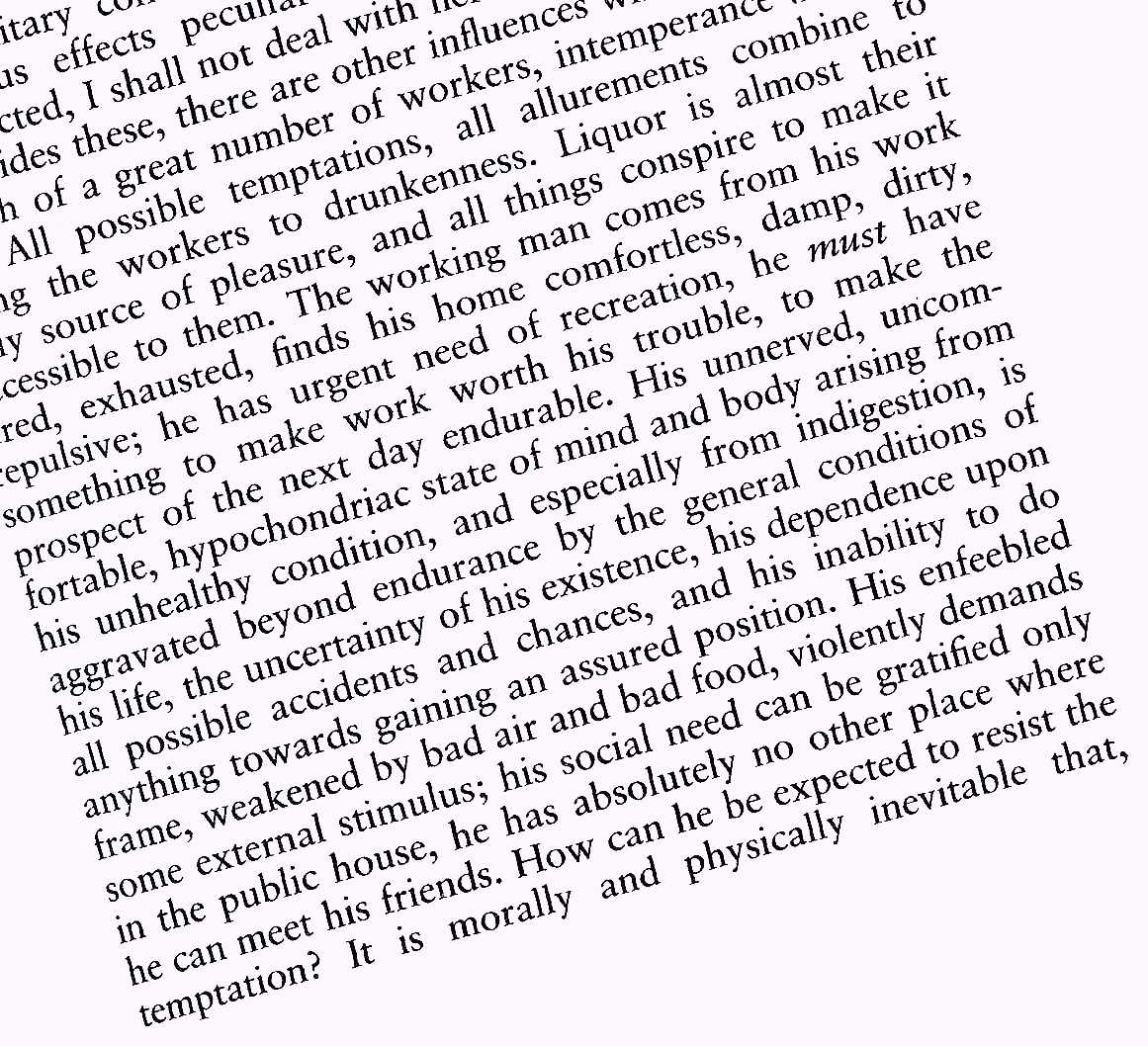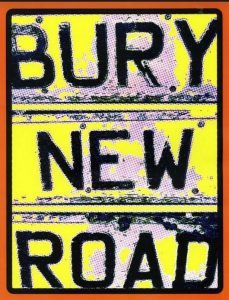On Manchester…
“I once went into Manchester with a bourgeois and spoke to him of the bad, unwholesome method of building, the frightful conditions of the working people’s quarters…The man listened quietly and said when we parted `And yet there is a great deal of money to be made here; good morning sir’…All the conditions of life are measured by money, and what brings no money is nonsense, unpractical idealistic bosh!”
On Manchester…
“The town itself is peculiarly built, so that a person may live in it for years, and go in and out daily without coming into contact with a working people’s quarter or even with workers, so long as he confines himself to his business or pleasure walks…With conscious determination, the working people’s quarters are sharply separated from the sections of the city reserved for the middle classes; or if this does not succeed, they are concealed with the cloak of charity…” The Condition of the Working Class in England.
On Salford…
“If we cross the Irwell to Salford, we find…one large working-men’s quarter, penetrated by a single wide avenue…All Salford is built in courts or narrow lanes, so narrow, that they remind me of the narrowest I have ever seen, the little lanes of Genoa…The working-men’s dwellings between Oldfield Road and Cross Lane, where a mass of courts and alleys are to be found in the worst possible state, vie with the dwellings of the Old Town in filth and overcrowding. In this district I found a man, apparently about sixty years old, living in a cow-stable. He had constructed a sort of chimney for his square pen, which had neither windows, floor, nor ceiling, had obtained a bedstead and lived there, though the rain dripped through his rotten roof. This man was too old and weak for regular work, and supported himself by removing manure with a hand-cart; the dung-heaps lay next door to his palace!
“Such are the various working-people’s quarters of Manchester as I had occasion to observe them personally during twenty months. If we briefly formulate the result of our wanderings, we must admit that 350,000 working-people of Manchester and its environs live, almost all of them, in wretched, damp, filthy cottages, that the streets which surround them are usually in the most miserable and filthy condition, laid out without the slightest reference to ventilation, with reference solely to the profit secured by the contractor. In a word, we must confess that in the working-men’s dwellings of Manchester, no cleanliness, no convenience, and consequently no comfortable family life is possible; that in such dwellings only a physically degenerate race, robbed of all humanity, degraded, reduced morally and physically to bestiality, could feel comfortable and at home. And I am not alone in making this assertion….” The Condition of the Working Class in England.
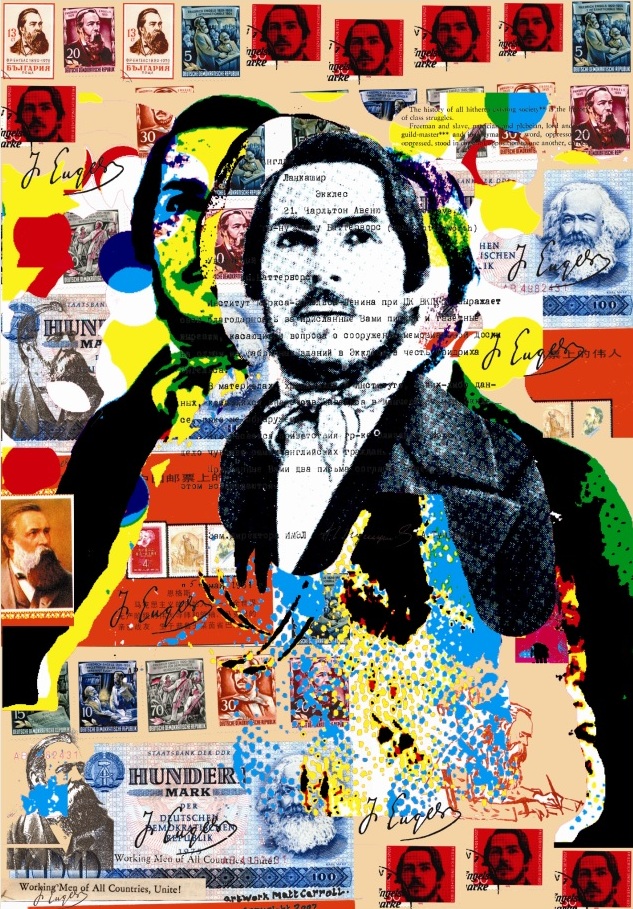
On Middle Classes…
“I have never seen so demoralised a class as the English middle classes. Their sole happiness is derived from gaining a quick profit. They feel pain only if they suffer a financial loss. Every single human quality with which they are endowed is grossly debased by selfish greed and love of gain…” 1845
On Exploitation…
“Exploitation is the basic evil which the social revolution strives to abolish, by abolishing the capitalist mode of production…” 1887
On Local Authorities…
“Urban authorities…almost everywhere in England are recognised centres of corruption of all kinds, nepotism and jobbery – the exploitation of public office to the private advantage of the official or his family.” The Housing Question 1887
On The Class Struggle…
“The history of all hitherto existing society is the history of the class struggles…” Marx and Engels: Manifesto of the Communist Party
“Let the ruling classes tremble at a Communistic revolution. The proletariat have nothing to lose but their chains. They have a world to win…Working Men of All Countries, Unite!” Marx and Engels: Manifesto of the Communist Party
Engels trivia…
As told to Karl Marx’s daughter Eleanor in 1869
Favourite virtue: Jollity
Favourite virtue in a man: To mind his own business
Favourite virtue in a woman: Not to mislay things
Favourite chief characteristic: Knowing everything by halves
Idea of happiness: A bottle of wine (Chateau Margaux 1848)
Idea of misery: To go to the dentist
The vice he excused most: Excess of any kind
The vice he most detested: Cant [hypocritical and sanctimonious talk, typically of a moral, religious, or political nature].
Favourite occupation: Chaffing and being chaffed [impatience]
Aversion: Affected stuck up women
Hero: None
Heroine: Too many to name one
Favourite flower: Bluebell
Favourite colour: Any one not aniline
Favourite poet: Shakespeare, Reineke de Vos, Ariosto
Favourite prose writer: Goethe, Lessing, Dr Samelson
Favourite dish: Cold: Salad Hot: Irish Stew
Favourite maxim: Not to have any
Motto: Take it easy
